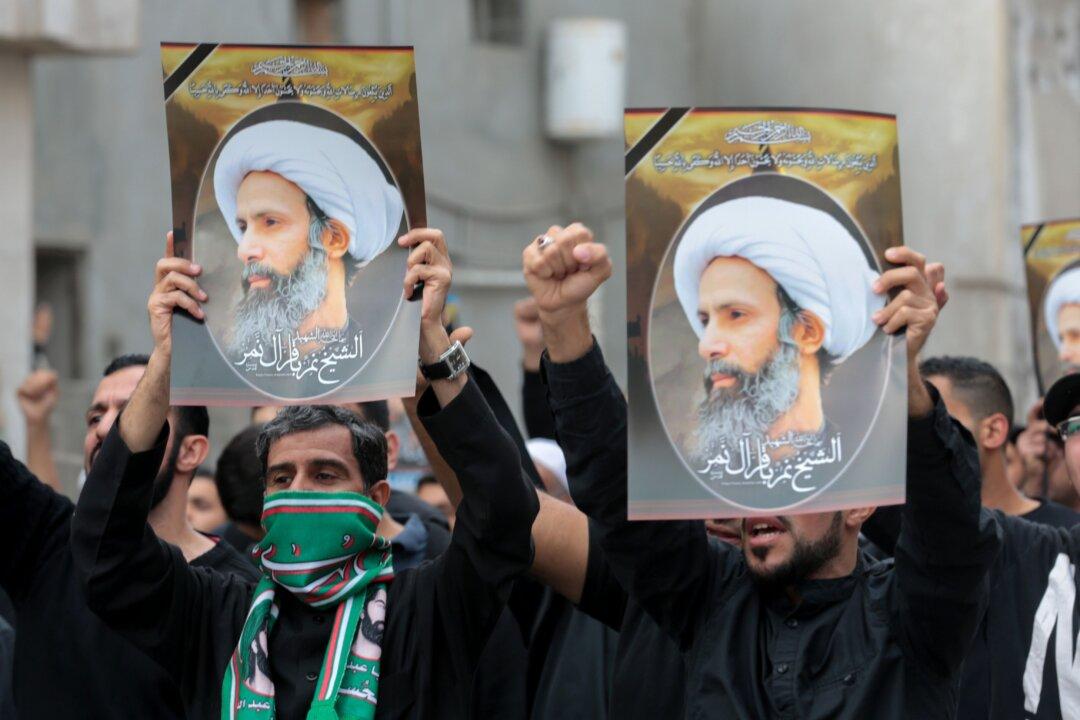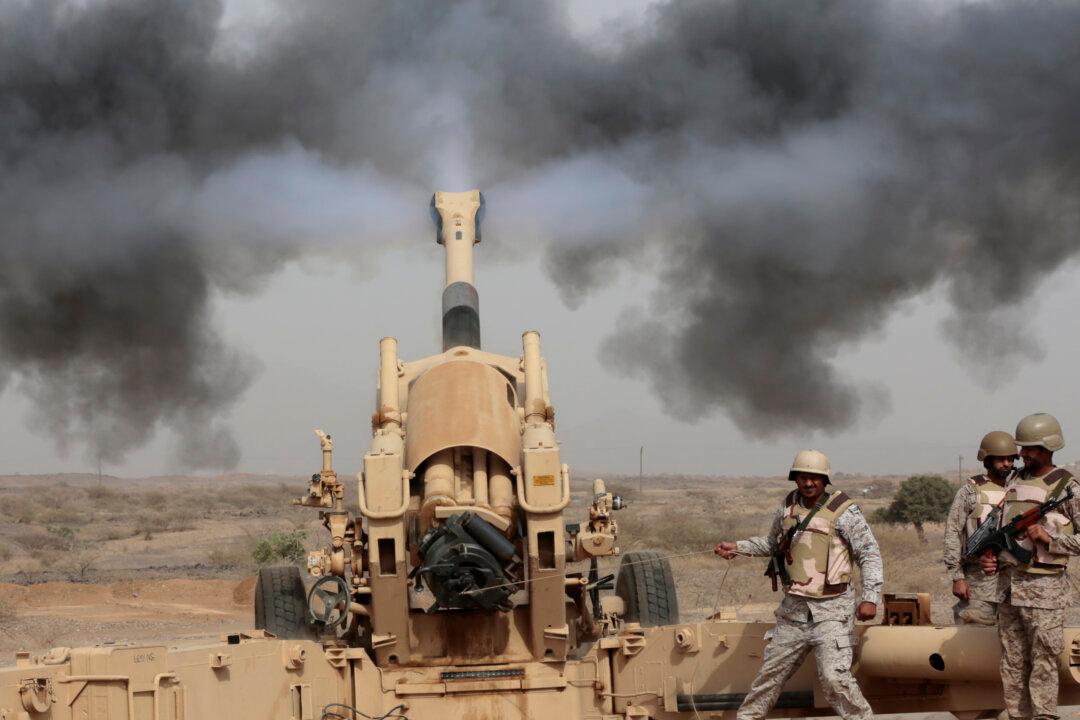The three-year old Syrian crisis presents dire dilemmas for Palestinians in the Occupied Palestinian Territories (OPT) and in refugee camps across the Middle East. Given Syria’s traditional role as a sponsor of Palestinian resistance movements and a home to hundreds of thousands of refugees, Palestinian leaders are understandably torn between loyalties to President Bashar al-Assad and his enemies.
Palestinians have fought in Syria on behalf of both the regime and the rebels. The conflict has deepened ideological and political wedges between Palestinians and complicated their patchwork of international alliances. Moreover, as various proxy battles are waged within Palestinian refugee camps in Syria, the Palestinian refugees there are now enduring an underreported humanitarian crisis.
Syria’s Role in the Palestinian Resistance
Historical bonds between Palestinian resistance movements, refugees, and the Syrian government have complicated Palestinian attitudes toward the grinding civil war in Syria. In 1948, 90,000 Palestinians fled to Syria as refugees. Since then, several hundred thousand more have arrived and settled in large refugee camps, such as Yarmouk in Damascus.
Syria has been more than just a host to refugees—it has actively fomented Palestinian resistance to Israel. The Syrian government armed, financed, and protected various left-leaning Palestinian guerilla groups that were established in Yarmouk during the 1960s. Two of these groups included the People’s Front for the Liberation of Palestine (PFLP), a Marxist-Leninist group founded in 1967, and the People’s Front for the Liberation of Palestine-General Council (PFLP-GC), established in 1968 as a splinter group from the PFLP.
The Assad regime has also funded Islamist Palestinian movements. After Jordanian authorities kicked Hamas’ leadership out of Amman in 1999, the Palestinian group established its political bureau in Damascus and received weaponry, financial assistance, and political support from the Syrian regime.
This partnership was ideologically paradoxical for the rigidly secular Assad regime. Hamas is an offshoot of the Muslim Brotherhood, whose Syrian branch waged an uprising against the Syrian regime from 1976-1982. The uprising ended with a regime-led offensive against rebel-controlled Hama—Syria’s third-largest city—that left tens of thousands of civilians dead and still rallies jihadist rebels against the Assad regime. Despite this bloody history, Bashar al-Assad’s support for groups such as Hamas (and the more radical Palestinian Islamic Jihad) played into Syria’s grander geostrategic strategy of countering Israel’s military dominance in the Levant by arming anti-Israel proxy networks.
A Resistance Divided
The outbreak of violence in Syria complicated Damascus’ relationship with these resistance groups, strengthening its ties with certain secular Palestinian currents but sundering them with most of the Islamists. Assad’s Palestinian backers have generally framed their narratives of the Syrian crisis around a Western-backed conspiracy to overthrow the only Arab regime that remains willing to confront Israel. The Palestinian supporters of the rebellion, however, view Assad as a dictator responsible for killing his own people. Rebel supporters are quick to bring up the massacre of Palestinian refugees at the Lebanese camp of Tel al-Zaatar in 1976, for which Hafez al-Assad’s forces bore responsibility.
The PFLP-GC and the West Bank-based Arab Socialist Ba’ath Party have thrown their weight behind Assad, as have several prominent religious and civil society figures in the West Bank—including Bishop Atallah Hanna (the Greek Orthodox Archbishop of Sebastia), Murad al-Sudani (Secretary-General of the Palestinian Writers’ Union), and Adel Samara (a left-leaning intellectual). Hamas, however, severed ties with the Assad regime and openly declared support for the Free Syrian Army (FSA). Meanwhile, certain Gaza-based Salafist factions, including the Mujahedeen Shura Council in the Environs of Jerusalem, have supported the al-Qaeda-affiliated Islamic State of Iraq and Syria (ISIS), even after al-Qaeda leader Ayman al-Zawahri disavowed the notorious Syrian rebel group this past January. According to Mohammed Hijazi, an expert on Islamist movements in Gaza, “scores of Salafists in Gaza” have traveled to Syria to fight alongside ISIS and other al-Qaeda-linked groups.
Meanwhile, Fatah, the dominant party within the Palestine Liberation Organization (PLO) and the Palestinian Authority (PA), has been forced to take a neutral stance on the Syria conflict while also trying to stand up for the safety of Palestinians inside Syria. Mahmoud Abbas, the leader of the PA as well as the PLO, is currently preoccupied with peace negotiations with Israel. Abbas does not want to antagonize the Syrian government or the Palestinian groups it supports. Yet he also does not want to invest his already limited political capital in supporting a regime that has committed serious human rights violations. Nor does he want to alienate the Obama administration, which he needs on his side to pressure Israel over sensitive topics like settlements or the right of return. Additionally, both pro- and anti-Assad groups within the Palestinian resistance stand to gain political capital if the PLO’s seemingly moribund peace negotiations with Israel ultimately fail and more Palestinians become convinced that a peaceful solution to the conflict with Israel cannot be found.
As these divisions simmer, Palestinian refugee camps in Syria have become sites of violent clashes between Palestinian and Syrian groups with opposing stakes in the conflict. When many analysts expected the regime to lose control of Damascus, the PFLP-GC militants fought against rebels in the capital, leading anti-Assad forces to target the Yarmouk camp, precipitating a serious humanitarian crisis. Food and medicine supplies were cut as the Syrian Army laid siege to the camp in July 2013. The government was able to negotiate a fragile ceasefire to bring aid into Yarmouk, but on March 2, the al-Qaeda-affiliated rebel group Jabhat al-Nusra moved in and imposed its own siege. Although the PFLP-GC retains significant support and influence among the refugees, the Free Syrian Army has made inroads in the area as the siege continues.
Both sides in the Syrian conflict espouse the Palestinian cause and accuse the other of serving Israel’s interests. Officials in Damascus claim that Israel sponsors the insurgents to destabilize the last Arab state willing to confront Tel Aviv. The Islamist rebels, however, criticize the Assad regime for pacifying Syria’s border with Israel for the last four decades and failing to re-conquer the occupied Golan Heights. Certain elements within the Islamist rebellion have stated their intentions to “liberate” Palestine after they “liberate” Syria by toppling the Ba’athist regime in Damascus, however ill-equipped they are to truly challenge Israel on the battlefield. Thus, both sides play the “Palestinian card” to attack the other while appealing to wider pan-Arab and pan-Islamic trends in the Middle East.
Shifting Geopolitical Winds
As the Syrian crisis enters its fourth year, the evolution of the conflict could have major implications for Palestinians.
Following several Israeli bombings of strategic sites in Syria, Assad has threatened to retaliate against Israel. Ultimately, given that the Syrian Army is bogged down fighting the insurgents, it is doubtful that Damascus would initiate an Arab-Israeli war. However, if Assad does retaliate, the Palestinians—particularly those living in Israel proper—will have much at stake.
Iran is also a factor. When Iran and Hamas’ relationship cooled as a consequence of their opposing stakes in the Syrian crisis, Iran cut its support for Hamas and increased its assistance to the PFLP and Palestinian Islamic Jihad. Although Iran and Hamas achieved a rapprochement in late 2013, ultimately agreeing to disagree on Syria, it appears that Iran’s renewed support for Hamas has not come at the expense of its sponsorship of these other groups, which have been at odds with Hamas for many years due to various political disputes. Since Hamas ended its relationship with the Assad regime and the Egyptian military ousted the Muslim Brotherhood government in Cairo, the Gaza-based group has been hard pressed to find foreign sponsors. Within this context, Hamas has been careful not to antagonize Iran by clamping down on Palestinian Islamic Jihad and other Gaza-based groups that have violated Israel-Hamas ceasefires. Therefore, the Syrian crisis has forced Hamas to recognize other political powers in Gaza as a consequence of Iranian pressure.
The potential for Salafist groups, such as ISIS and Jabhat al-Nusra, to carve out a de facto Islamic emirate in parts of northern Syria could send reverberations through the West Bank and Gaza as well. In both territories, Palestinian Salafist groups have challenged Fatah and Hamas’ authority in several ways, including by launching terrorist attacks. Gaza-based Salafists, meanwhile, have traveled to Syria to fight alongside ISIS. With such currents gaining greater power in the Egyptian Sinai, Lebanon, and western Iraq, al-Qaeda’s dream of establishing a borderless Islamic emirate in the Levant will continue to impact the regional environment. Under such circumstances, Hamas will likely be compelled to strike a balance between leading the jihad against Israel while simultaneously restraining other groups that seek to steal the resistance banner as Hamas engages in ceasefire negotiations with Israeli authorities.
As the Syrian crisis appears to have no easy solution in sight and the Palestinians’ internal divisions are unlikely to resolve in the near-term, the Syrian conflict’s polarizing impact will likely be felt within the Palestinian population for the foreseeable future. Of course, while the stateless Palestinians have less capacity to influence events in Syria compared to major regional powers that are heavily involved in the conflict, nearly all Palestinians understand that their people have high stakes in Syria.
Sam Badger is a graduate teaching associate of philosophy and graduate student at San Francisco State University. Foreign Policy In Focus contributor Giorgio Cafiero is a Washington, D.C.-based foreign affairs analyst and a regular contributor to the Huffington Post. Originally published in Foreign Policy in Focus under a Creative Commons License 3.0.



